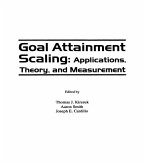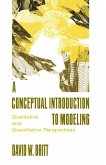Exploratory Factor Analysis (EFA) has played a major role in research conducted in the social sciences for more than 100 years, dating back to the pioneering work of Spearman on mental abilities. Since that time, EFA has become one of the most commonly used quantitative methods in many of the social sciences, including psychology, business, sociology, education, political science, and communications. To a lesser extent, it has also been utilized within the physical and biological sciences. Despite its long and widespread usage in many domains, numerous aspects of the underlying theory and application of EFA are poorly understood by researchers. Indeed, perhaps no widely used quantitative method requires more decisions on the part of a researcher and offers as wide an array of procedural options as EFA does. This book provides a non-mathematical introduction to the underlying theory of EFA and reviews the key decisions that must be made in its implementation. Among the issues discussed are the use of confirmatory versus exploratory factor analysis, the use of principal components analysis versus common factor analysis, procedures for determining the appropriate number of factors, and methods for rotating factor solutions. Explanations and illustrations of the application of different factor analytic procedures are provided for analyses using common statistical packages (SPSS and SAS), as well as a free package available on the web (Comprehensive Exploratory Factor Analysis). In addition, practical instructions are provided for conducting a number of useful factor analytic procedures not included in the statistical packages.
Dieser Download kann aus rechtlichen Gründen nur mit Rechnungsadresse in A, B, BG, CY, CZ, D, DK, EW, E, FIN, F, GR, HR, H, IRL, I, LT, L, LR, M, NL, PL, P, R, S, SLO, SK ausgeliefert werden.









